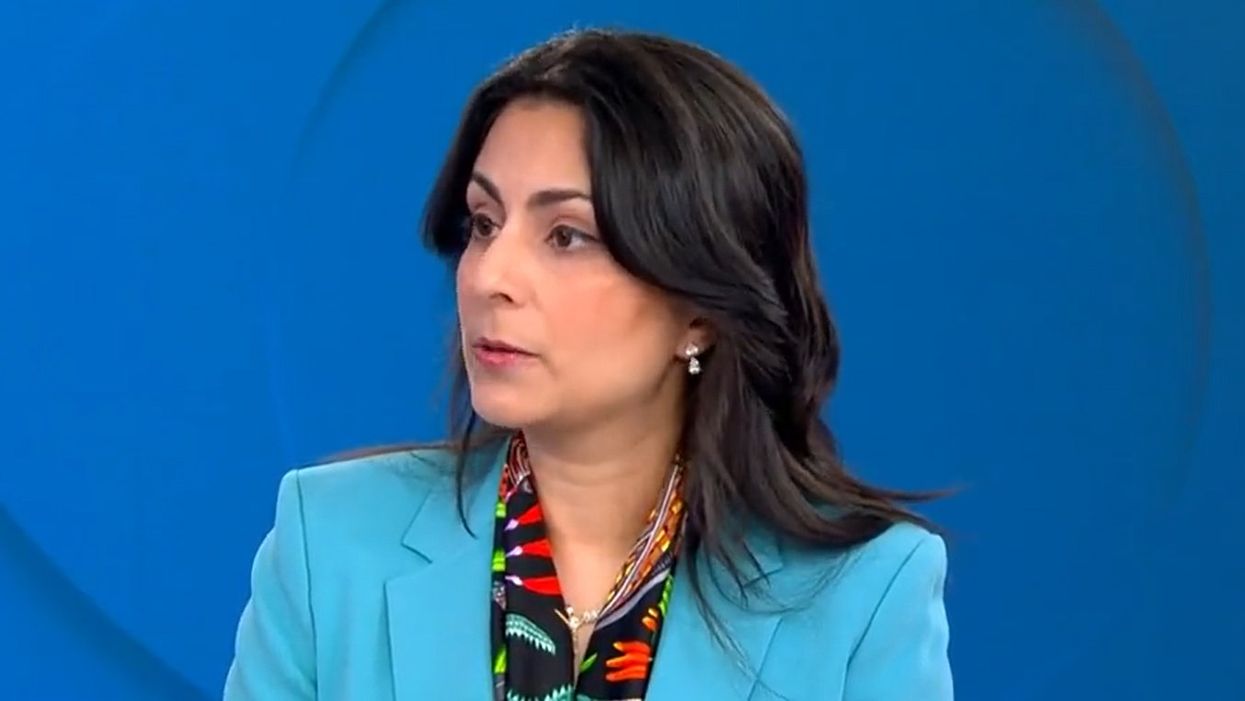
Image source: Twitter video - Screenshot

CBS News' medical contributor Celine Gounder insinuated Monday that the young people who suffered an unprecedented spike in lethal heart attacks during the first two years of the pandemic might only have themselves to blame.
While the Centers for Disease Control and Prevention is among the agencies and experts that have acknowledged a link between the COVID-19 vaccines and heart issues, Gounder suggested that the spike in heart attacks was instead likely resultant of young people with generally stronger immune systems not getting vaccinated and failing to wear masks.
Gounder, editor at large for public health at Kaiser Health News, spoke to CBS News about a recent national study conducted by doctors at Cedars-Sinai Hospital, which showed a spike in heart attacks during the pandemic across all age groups, but in the 25- to 44-year-old age group in particular — a demographic previously not regarded to be at high risk of cardiac arrest.
The study, based on data analysis from the Smidt Heart Institute at Cedars-Sinai and published in the Journal of Medical Virology, found that heart attack death rates "took a sharp turn" and spiked during the pandemic, including during the Omicron phase of the pandemic when mRNA COVID-19 vaccines were ubiquitous.
Dr. Yee Hui Yeo, the first author on the study, said, "The dramatic rise in heart attacks during the pandemic has reversed what was a prior decadelong steady improvement in cardiac deaths."
The researchers recognized that "infections such as the flu can increase risk for heart disease and heart attack," but noted that "the sharp rise in heart attack deaths is like nothing seen before."
The study ultimately showed that there were 143,787 heart attack deaths in the year prior to the onset of the pandemic. However, in 2020, this number increased by 14% to 164,096.
According to Cedars-Sinai, the "excess in acute myocardial infarction-associated mortality has persisted throughout the pandemic, even during the most recent period marked by a surge of the presumed less-virulent Omicron variant."
The relative rise in heart attack deaths was most pronounced in the youngest group. By 2021, "the 'observed' compared to 'predicted' rates of heart attack death had increased by 29.9% for adults ages 25-44, by 19.6% for adults ages 45-64, and by 13.7% for adults age 65 and older."
Cedars-Sinai appeared keen to attribute the spike in heart attacks to multiple factors, including trends that long predated the pandemic, but failed to mention the vaccines. Among the possible reasons given were that COVID-19 may have accelerated preexisting coronary artery disease or that chronic stress resultant of job loss and other financial pressures set them off.
Yeo noted, "There are several potential explanations for the rapid rise in cardiac deaths in patients with COVID-19, yet still many unanswered questions."
Gounder joined CBS News' Tony Dokoupil and Lilia Luciano on Monday to discuss the study's findings.
"So the 25- to 44-year-olds — you saw this 30% increase in the risk of death from heart attack. And that really is quite striking," said Gounder. "That's not a group, an age group, in which you normally see heart attacks, much less dying from a heart attack."
Dokoupil said, "You look at the years prior to the pandemic and the typical rate of heart attack death in that age group, and then you see it increase and you wonder, what’s the new variable? And so the pandemic is that the new variable?"
"That's right," answered Gounder, reiterating the researchers' point that in the years leading up to the pandemic, heart attacks were actually on the decline.
When answering why younger people in particular suffered a spike in fatal heart attacks, Gounder admitted that there was no confirmation that many of the deceased had COVID-19 to begin with: "We don't know for sure. And in fact, these death certificates are probably not even capturing the fact that [the victims] had COVID. They're really just saying that you died from a heart attack or not."
"What we do know, however, is that younger people were less likely to protect themselves against COVID than older people, less likely to mask, less likely to take other mitigation measures, and they were also further back in line to get vaccinated. ... Those might have been a factor here," claimed Gounder.
Gounder took to Twitter to double down on her speculations, concluding that people should get vaccinated and wear masks to minimize their risk of heart attacks.
A recent study cast doubt on the benefits of one of Gounder's recommendations.
"Interestingly, 12 trials in the review, ten in the community and two among healthcare workers, found that wearing masks in the community probably makes little or no difference to influenza-like or COVID-19-like illness transmission," British epidemiologist Tom Jefferson, co-author of the Cochrane Library's report on masking trials, noted in the Spectator. "Equally, the review found that masks had no effect on laboratory-confirmed influenza or SARS-CoV-2 outcomes. Five other trials showed no difference between one type of mask over another."
The Telegraph reported on another study that found young men were "six times more likely to suffer from heart problems after being jabbed than be hospitalised from coronavirus."
Like Blaze News? Bypass the censors, sign up for our newsletters, and get stories like this direct to your inbox. Sign up here!